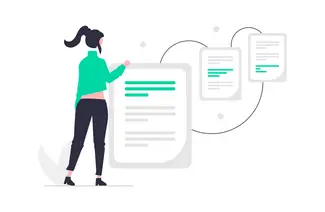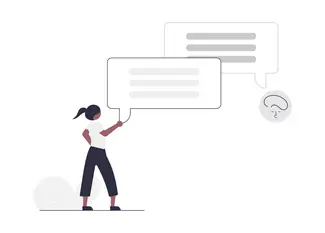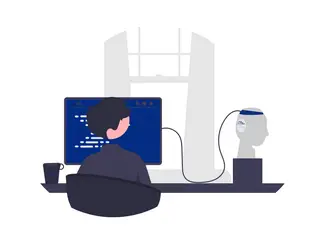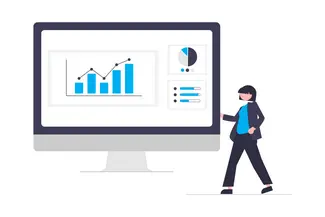The tricky thing about seeing the future is seeing the future of things that actually matter. For the legal industry, technology has a direct effect on the speed, accuracy, and security of work, so we did our homework and focused predictions on four core technology areas that will matter to nearly every legal professional in 2023: integration, automation, data, and cybersecurity.
Rather than examine each of these areas from a high-level conceptual perch, we view them from the ground level to assess how they may change things for legal professionals as the year unfolds.
Here’s what we found and what you should prepare for—or take advantage of.

Move faster from Point A to Point B
Integrations almost always result in getting more done in fewer steps, which is why they appear at the front of this parade. One of the best efficiency payoffs we predict for 2023 will come from the integration some litigation support service providers have stitched together with document management systems (DMS).
That’s because these digital mergers accelerate the speed and accuracy of eFiling and other litigation support services that require the use of documents saved in a DMS.
In terms of law firm productivity, here’s a clear example of why these integrations matter:
Traditionally, if you wanted to use documents from a DMS with an eFiling, you’d be slowed down by a clunky transfer process that looks like this:
- Retrieve documents from the DMS.
- Download the documents to your local drive.
- Upload the documents to a litigation support service provider’s platform.
- Lather, rinse, repeat.
In contrast, the integration between the DMS and litigation support service provider makes the process leaner.
That’s because the integration allows you to access your DMS from the same browser window you’re already working in as you create an eFiling order.
This more efficient process is already saving time on eFiling and other litigation support service orders offered by Rapid Legal. The company engineered an integration with iManage and NetDocuments that shrinks the traditional way of wrangling assets from a DMS into this simple process:
- Select iManage or NetDocuments from the dropdown menu in the Rapid Legal portal, select the documents you need, and add them to your order.
That’s it. No extra steps.
You can watch this seamless process in action in this explainer video.
Another important integration the legal industry will welcome in 2023 comes from search engine behemoth, Google. Keep your eye on this one because it’s likely to help you reduce document rejections caused by inaccurate or incomplete address information.

Location, location, location!
Getting the right location is as crucial for legal documents as it is for buying real estate. To help make location-based information for litigation support service orders as accurate as possible, Rapid Legal engineered an integration with Address Validation by Google.
Here’s how it will affect your work:
As you type an address into a location-based order, Google recommends a match from its 160 million addresses. You select the address you want and Address Validation by Google validates the information for accuracy and completeness. This feature also:
- Adds missing information such as street designation or ZIP codes.
- Determines the type of address automatically (business or residence).
- Searches by business name only (Google adds the full address).
Take a look at Address Validation by Google in this explainer video and you’ll understand why we predict integrations will be headline news for the legal industry.

Automation: The bot will see you now
It’s official: Automation in the legal industry is no longer just for number crunchers. Automation has moved beyond the dry landscape of actuarial calculations onto a colorful new plane where it helps law firms become more, well, chatty.
Just ask the chatbots.
Chatbots are artificial intelligence (AI) tools that help offload work from human counterparts. This makes them seem like the inevitable MVP for many hyper-busy law firms.
If you’re asking, “What have chatbots done for me lately?” here are two important tasks they perform to help law firms manage workloads:
- Welcome visitors to the law firm website and provide immediate attention.
- Respond to online FAQs from prospects and clients.
But wait, there’s more.
Chatbots have mastered the digital meet-and-greet in multiple languages, perform their tasks 24/7 for no salary, and never call in sick. Chatbots also free up law firm staff to focus on higher value work, which is something office managers appreciate.
The growth arc for chatbots won’t flatten out any time soon. As popular as they will become, though, chatbots will be only part of the legal industry’s automation story for 2023. That’s because automation-based discovery tools have gotten a foothold among 21st century law firms, which positions them for higher levels of adoption.

Automated convenience
The use of automation tools for early discovery will grow this year for good reason: The costs associated with the discovery phase of a trial may balloon up to more than the cost of the trial itself.
Artificial intelligence changes that calculus by assisting with the tedious, time-consuming portion of early discovery. That includes tasks associated with collecting, processing, searching, reviewing, and analyzing data. All handled in a fraction of the time manual methods require.
Another area where AI tools will grow in popularity is contract review. Similar to the reasons legal professionals use AI-based early discovery tools to save time, they will also use AI-based contract review tools to review and remediate contracts in far less time than manual methods.

Automation for litigation support services
Automation is catching on among litigation support service providers, and their expanding use of this technology in 2023 shows no sign of slowing down. The appeal of automation lies in the efficiency and peace of mind it offers busy legal professionals.
The popularity of automated services has risen quickly among Rapid Legal’s own customers, where the company applies automation to:
- Proof of Service alerts sent automatically to a customer’s email inbox to advise that service has been completed.
- Electronic payment systems that move payment for service online and eliminate paper checks. This automation makes paying for litigation support service orders paperless and nearly instantaneous.
The more you use these integrations the more you’ll wonder how you ever worked without them. If you are a manager, you’ll wonder how you ever managed without them.
And, there is more good news coming for firms that want to manage operations efficiently: Data they’re probably already sitting on can be used to strengthen the bottom line.

Know your data, know yourself
Do you know whether your firm is making money? Do you know whether your clients are happy?
Some law firms have no clue how to answer these questions, a phenomenon observed by Nicholas d’Adhemar, founder and CEO of Apperio, in an interview with Law.com.
d’Adhemar says the majority of large legal departments do not measure in-house activity. That lack of insight, he explains, leaves firms in the dark about key business metrics.
But that’s about to change.
“[Law firms will] increasingly look to legal technology to scale and streamline workflows and capture data to prove their value,” d’Adehmar says.
And, as law firms begin to use data about themselves and their clients, they increasingly will begin to measure efficiency, client satisfaction, and legal spend, d’Adhemar explains. Doing so will allow them to manage those areas more effectively.
d’Adhemar isn’t the only one who thinks so.
Scott Forman, Chief Data Officer, Littler Mendelson, says legal service providers and law departments have pulled insights from their own data ecosystems in the last few years to reap substantial returns.
They’ve been able to do this by investing in technology.
“For those with established data science teams and operations, now is the time to really leverage the work done to organize and aggregate their data to optimize internal processes and enhance the delivery of legal services,” Forman says.
Law firms are learning that data helps them effectively manage the most important areas of their business, which is to say they are learning the value of data.
Unfortunately, cybercriminals also know the value of data and have grown more ambitious in their attempts to steal it. Which raises an important question for law firm leadership to ask themselves in 2023: “What are we going to do about it?

A culture of security
The sheer volume of digital outlaws operating in cyberspace makes the online world seem like the Wild West. In 2023 alone cybercriminals are projected to cost the global community $8 trillion, and no one expects them to disappear anytime soon.
The fallout from cybercrime is so bad Warren Buffet characterized it as the #1 problem with mankind.
It’s not just Warren Buffett who’s troubled by cybercrime—it’s also troubling to 42% of law firm business leaders who rated security breaches, data loss, hacking, and ransomware as high risks to law firm profitability.
Is there a way to fight back?
Yes, there are a number of methods the legal industry can use to combat cybercrime. Among the most promising and practical are:
- Security tokens
Physical objects such as a smart card, USB key, mobile device, or radio frequency ID card that provides authentication by generating a password that allows you to access a system. - Security training awareness programs
Cybersecurity awareness training addresses everything from bad practices to cyber assessments, cyber incident responses, and more. The training helps workers at all levels across a law firm identify online security risks and avoid them. - Passwordless technology
Devices are unlocked using methods such as a fingerprint, face verification, or “magic link.” Magic links are similar to a one-time use code you’d receive via email, except the link enables you to log into a system directly by clicking on it. Apple passkeys are an example of passwordless technology, engineered to function across all Apple devices as well as non-Apple devices within physical proximity. - Multi-factor authorization
Multi-factor authorization requires two or more forms of evidence to access an account: for example, a password with a single-use PIN. Some variations may include a password combined with a biometric identifier such as a fingerprint, face, or retina.
Cyberattacks on the legal industry will almost certainly continue beyond 2023. However, a surge in the adoption of hacker-resistant technologies combined with education aimed at teaching legal professionals how to recognize and respond to cyberthreats could signal a lane change in how well the industry protects itself.

Grab your shades. The future looks bright
The legal industry has challenges to overcome in the year ahead, but even as the industry continues to emerge from the recent pandemic there is reason for optimism.
Perhaps the most compelling reason was captured in a recent survey in which an 84% majority of law firm managers or executives say they feel empowered to drive change from within their firms.
Rapid Legal is here to help law firms and legal professionals across the legal industry drive positive change and strengthen their position. Contact us to find out how our integrations, automations, and other data-driven services can help your law firm save money, operate more efficiently, and make 2023 one of your best years ever.
Schedule a demo or set up a call with a Rapid Legal account manager today!
